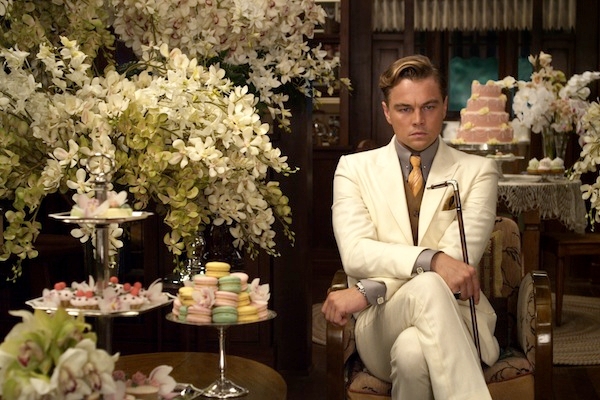You do not need to have read the book or even seen a film adaptation to feel a thrill at the word ‘Gatsby’. More than a novel, a film or a character, ‘Gatsby’ is an aspiration. The golden age of jazz, cocktails and evening dress, F. Scott Fitzgerald’s novel is one of those works which has been subsumed and overtaken by its own myth.
Such is The Great Gatsby’s enduring glamour that even the release of trailers for the latest film version (starring Leonardo di Caprio and Carey Mulligan) made news. You can see why. The film promises everything: beautiful people, luxurious locations and great clothes. After Gatsby has received this terrific fresh kick we will doubtless be able to look forward to imitation cocktails, imitation fashions and even — though we must hope not — imitation parties.
But just as most people now seem to remember Brideshead Revisited not as a novel about religion and alcoholic disintegration, but one of idyllic summers and teddy bears, so Gatsby is remembered as something it is not. Rather than a description of futility and envy, it tends to be recalled for its aspiration and glamour. It is just as well for his posthumous renown that Fitzgerald’s novel has attained this position. For, returning to the original, it is difficult to see how its reputation would hold if it was based on the actual work.
In any poll of great 20th-century novels, let alone great American novels, Fitzgerald’s most famous work always comes at or very near the top. Not least among the reasons must be its brevity. A number of Fitz-gerald’s works are better, but they are also longer. Gatsby’s briefness (around 150 pages) means people can get it early as well as easily. It remains a staple study-book for school-children on both sides of the Atlantic.
And though it is not a bad book, it is not a masterpiece. Fitzgerald famously stripped down Gatsby’s text to its bare bones, paring away the stylistic clogging of This Side of Paradise and other early work. But the popularity of the novel, and the acclaim it receives, remain slightly mystifying.
Of course there is good writing. But there are also terrible, clunking passages (‘There was nothing to look at from under the tree except Gatsby’s enormous house, so I stared at it, like Kant at his church steeple’). Re-reading the book, what is most striking is the coarseness of a plot, which amounts to little more than melodrama. For me, as for most readers, the intervening years had removed this memory. The climax (for those who don’t know, look away now) is a car accident where a woman happens to run out on to the highway at precisely the moment that the car her lover drives is being driven by someone else. It hits her and she dies. From this event comes a spate of deaths, including that of Gatsby himself. These are described (forgivably for the 1920s but hyperbolically nonetheless) as a ‘holocaust’.
Strip away this melodrama and what are you left with? An enigmatic central character for whom it is hard to have much sympathy and then the only thing anyone really remembers: the parties. These are the core of the Gatsby myth, just as the Oxford chapters are — for a certain type of reader — the misread heart of Brideshead. But although the set-piece descriptions have magnificent moments, how can you explain the glamour with which the parties are remembered?
Any point Fitzgerald appears to be making with the episodes seems forever to be getting lost. Far from being the sort of party you would wish to gatecrash, Gatsby’s affairs are filled with hopeless drunks and hangers-on, dull, empty conversations and the constant intimation that there are no such things as happy times, only happy memories. By the end of the book the party is over, but it is hard to feel any frisson of regret when the party was so little fun when it was going on. Why anybody reconnecting with the text would envy or wish to window-stare at the events is a mystery. The novel’s centrepiece is a hollow and unpleasant thing, curiously misremembered and taken up by its adherents as an exemplar of the good life.
For generations of young (especially Ivy League) Americans, Gatsby and the whole Fitzgerald myth has had the same destructive effect as Brideshead on a certain type of English youth. Nearly all countries have some national variant of this: novels that slipped their moorings and epitomised a certain aspiration. Read in the right — or rather the wrong — way they may be the epitome of style. But how strange it is that so many books that should be read as a warning get read as a yearning. Gatsby invites us to wallow. Doubtless in the coming weeks we will again. But we ought not to.







Comments